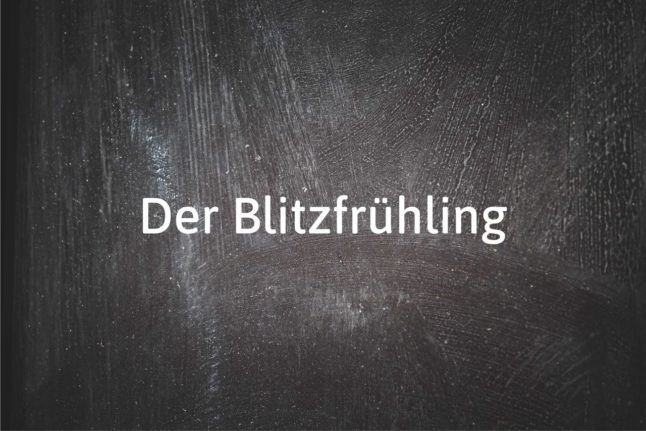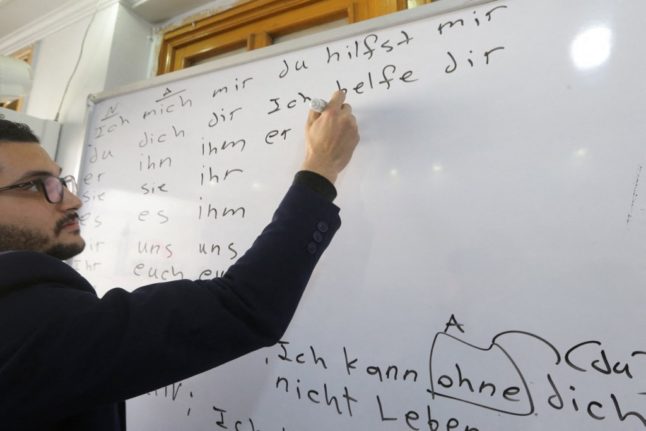This week, it seemed like all of Austria emerged from hibernation. Clambering out of their burrows, many Austrians blinked at the sun, and the 20C weather in utter bewilderment: wait, is spring finally coming?
Following some icy spells across the whole of Austria, the country was catapulted into spring with little to no warning. And of course, the German speakers have a word for this: Blitzfrühling.
A literal translation is “lightning spring,” but there doesn’t seem to be any direct English equivalent. The closest idiomatic translation might be ‘flash spring,’ though the German imagery is certainly a lot more striking.
Blitz- is often used as a prefix in front of a noun in German, and indicates that something is sudden, surprising and short (you might think of “Blitzlicht” for a camera flash, or even the word “blitzkrieg,” a germanism adopted into the English language in 1939).
However, the union of ‘Blitz’ and ‘Frühling’ is quite a recent one. Online, the earliest use of the word appears to be in 2010, on Volksstimme.de, the Saxony-Anhalt’s local newspaper.
There, H.-E. Gorges writes: “vom sonnenhungrigen Menschen aus gesehen, […], kam der ‘Blitzfrühling.’” Or, roughly translated: “From the point of view of the sun-starved people, there came the ‘Blitzfrühling’.”
Of course, there is a potential dark side to what is unquestionably a charming addition to the German language. Meteorologists around the world are reporting increasing numbers of extreme weather variations and temperature changes.
The recent addition to the Blitz- family reflects these changes, and could become an increasingly common phenomena in the early months of the year. This might seem like a welcome change for us, but will become a confusing and even dangerous development for animals who rely on hibernation to get through the winter.
Example sentences:
Nach dem Blitzeis kommt jetzt der Blitzfrühling.
Dangerous icing conditions will be followed by a “Blitzfrühling”.
Nach dem Blitzfrühling bleibt es bis Monatsende überwiegend freundlich und trocken.
Following the “Blitzfrühling,” the rest of the month will remain mostly bright and dry.
Das Winterwetter ist noch lange nicht vorbei, das Wochenende bringt aber zumindest einen Blitzfrühling.
The winter weather isn’t over by a long-shot, but we’ll see a “Blitzfrühling” at the weekend.
With reporting by Charlotte Hall.



 Please whitelist us to continue reading.
Please whitelist us to continue reading.
Member comments